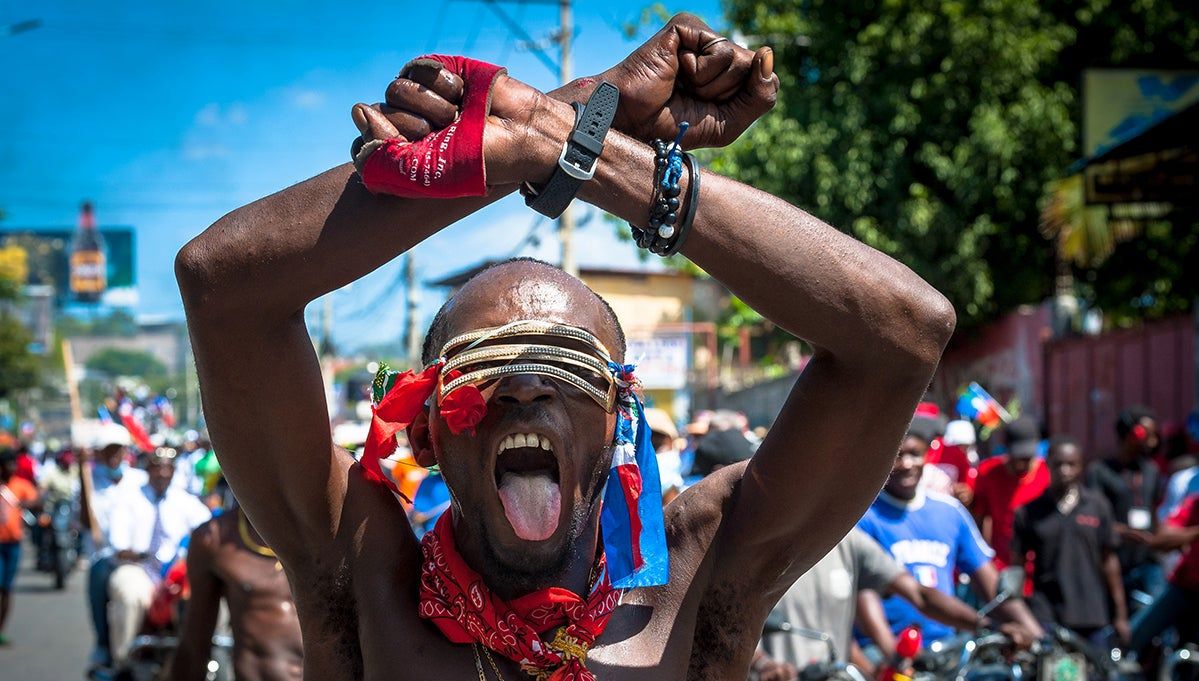If Black Media Doesn’t Tell The Truth About This Nation, It Won’t Be Told
Source: Screenshot/Ceros / Ceros
Letter from the Editor:
In April of this year, approximately three months into my new role at iOne Digital, Allison McGevna-Cirino, iOne’s Senior Vice-President of Content, came to me with an ambitious idea. She wanted to pay homage to pioneering Black newspapers, while simultaneously highlighting some of the social justice stories that have continued to impact Black people since the beginning of the COVID-19 pandemic.
What an honor. What a responsibility.
How does one sift through the rubble of broken dreams and shattered futures that state violence—both police and political–left scattered on the asphalt of communities across this nation? How is it possible to see the imperialist crimes of which this nation is complicit, from Haiti to Palestine, and decide which stories are newsworthy? How does one curate an unflinching truth about a country that has lied about the depth and quality of its character since its inception?
Well, you begin by rooting the work in the tradition of the Black journalists that have come before—such as Ida B. Wells-Barnett, who taught us through her work at the Memphis Free Speech and beyond, to be both righteous and rigorous. You think of the Freedom’s Journal and the Woman’s Era, of the Chicago Defender and the New York Amsterdam News, of the Los Angeles Sentinel and Negro World.
You think of all the Black journalists who have risked their lives to tell the truth. This Front Page is by no means exhaustive. There is no way to list the names of every Black person killed by police—no way to list every injustice, every instance of inhumanity and hypocrisy. There is no way to lift up all the brilliant, beautiful, bold, Black work that is being done to make freedom dreams a reality. What we have curated here is a small window into what resistance, revolution, and reimaging has looked like across this nation and the globe.
“Having lost my paper, had a price put on my life, and been made an exile from home for hinting at the truth, I felt I owed it to myself and to my race to tell the whole truth.”
— Ida B. Wells-Barnett
Mariame Kaba and Andrea Ritchie begin by teaching us about abolition and making it plain that a world where George Floyd and Ma’Khia Bryant and Breonna Taylor are still alive is a world without police. Kimberlé Crenshaw, one of the architects of Critical Race Theory, breaks down why it is so important for this nation to confront its foundational violence in order to dismantle systems structured precisely so that the brutality continues. Ajamu Baraka sheds light on the uprisings in Haiti and beyond, while Loubna Qutami not only educates readers on the continued ethnic cleansing and occupation of Palestinian land, but on the history of Black-Palestinian solidarity.
From the dire need for a federal focus on Black women and reproductive justice, to a conversation with descendants of the 1921 Tulsa Race Massacre, the iOne Digital team has curated a page rooted in Black liberation. We hope to show with this front page that, just as with Black newspapers of the past, if there are those in positions of power attempting to deny our people human rights, there will be Black journalists, writers, and content creators holding their feet to the fire every step of the way.
A new world is possible. Click the link below to engage with revolutionary work clearing and creating pathways that lead us there.
In solidarity,
Kirsten West Savali, Senior Director, Content, iOne Digital

